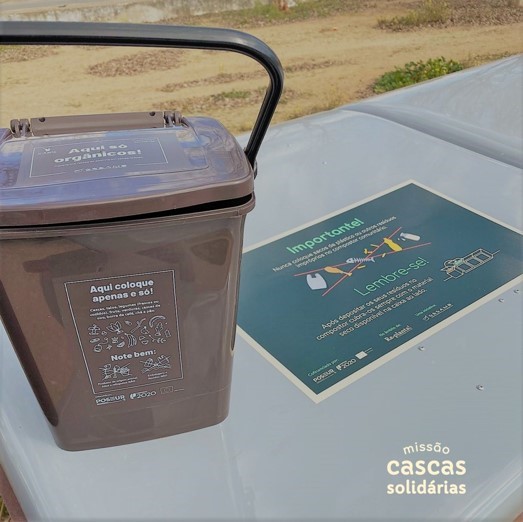
How do compost production and new wheelchair equipment relate? Some people have put the idea into practice: By collecting the organic waste of a community that will then be converted into high quality compost and the income of its sales will be used to buy material for people in need.
Indeed, the amount of organic waste that citizens separate and deposit in the domestic and community equipment distributed and installed in the district of Évora, in the east of Lisbon, represents a value, that will later be converted into monetary support for Private Social Solidarity Institutions, whose work is focused on the provision of care to people with disabilities.
Since 2021, in the Portuguese district of Alentejo, any citizen, company or organisation can support children and adults with disabilities simply by recycling their fruit and vegetable peelings - less waste, more social support. The powerful initiative Mision Cascas Solidarias MCS - Solidarity Peels Mission - is carried out by Gesamb, the company responsible for the management and exploitation of the Urban Solid Waste Treatment and Recovery Intermunicipal System of the District of Évora (SIRSU).
“We found that since MCS started, and after all the effort of the door-to-door, street-to-street, house-to-house campaign by the 12 municipalities covered by the GESAMB service, we have had a record number of online requests for home composters”, stated Gilda Matos, a senior official. Using this simple, old-school strategy, MCS managed to deliver more than 300 household composters in the last quarter of 2021. As from February 2022, a new pilot project is installing 28 community composting islands in 12 municipalities in the district of Évora, and some of them are already full.
By joining the community composting, people are taking trucks off the road (waste collection), valuing a resource that would otherwise be wasted, and above all, actively participating in restoring the environmental balance of their region.